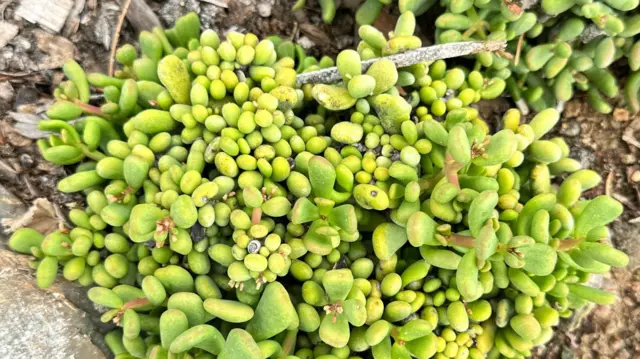A remote region in South Africa, rich in unique plant species, has become a hotspot for illegal trade in succulents, with organized crime syndicates exploiting global demand.
The Succulent Karoo desert, spanning South Africa and Namibia, is home to thousands of species found nowhere else. These plants, valued for their ability to survive in harsh climates, range from small, colorful buttons to cacti with vibrant blooms. While they can be cultivated in nurseries, many are being poached from the wild to meet international demand, particularly in the US, Europe, and East Asia.
Local conservationists warn that poaching has already driven several species to extinction. Over 1.6 million succulents were seized by South African authorities between 2019 and 2024, though the actual number taken from the wild is believed to be much higher.
The rise in poaching coincided with the COVID-19 lockdown, as international traders turned to locals to collect and ship plants. Organized crime groups now recruit poachers to uproot these plants, which are then sold online through social media and e-commerce platforms.
This illegal trade has had devastating effects on local communities. Low-income residents often engage in poaching for quick cash, leading to social issues such as binge drinking, drug abuse, and neglect. Community trust has eroded, with tensions growing between those involved in poaching and others striving to protect their heritage.
Efforts are underway to combat the trade. Conservation groups are working to educate buyers about the importance of sourcing plants responsibly, while some countries have launched campaigns to reduce demand for wild succulents. Online platforms are also being urged to monitor and prevent the sale of illegally harvested plants.
Experts advocate for the cultivation of succulents to meet demand legally and sustainably. Conservationists managing nurseries for confiscated plants hope to raise awareness and protect the region’s biodiversity. Despite the challenges, they remain committed to preserving these unique species for future generations.



